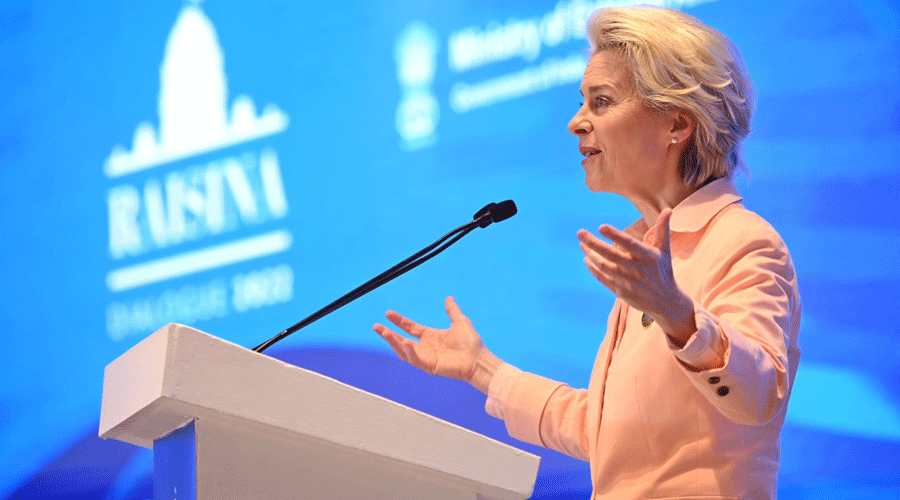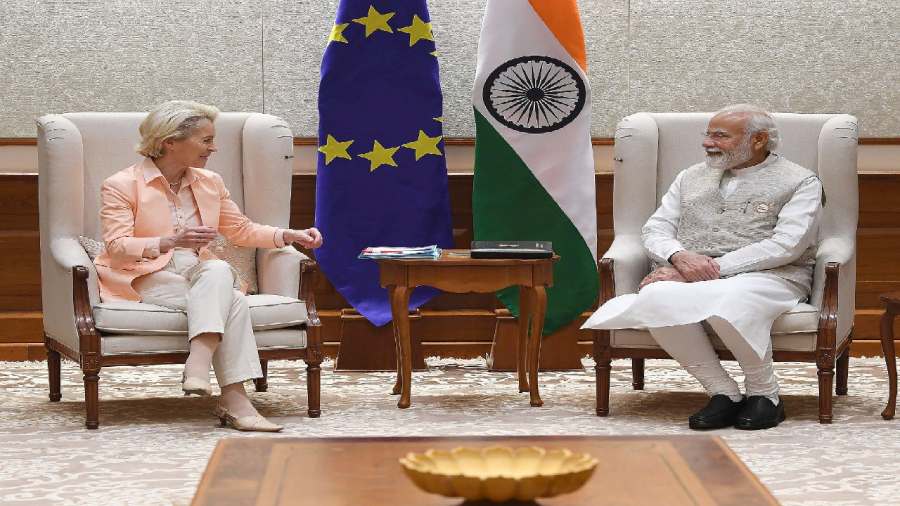European Commission president Ursula von der Leyen on Monday sought to counter India’s refusal to join the western coalition against Russia over the Ukraine conflict by asserting that it would impact the Indo-Pacific and reminded New Delhi that Moscow and Beijing had in February announced a friendship with “no limits”.
Von der Leyen, delivering the inaugural address at this year’s Raisina Dialogue here in the presence of Prime Minister Narendra Modi, urged “all members of the international community to support our efforts for lasting peace”.
She said the “massive, sharp and effective sanctions” on Russia were part of a larger strategy to arrive at a diplomatic solution.
“Sanctions are never a standalone solution. They are embedded in a broader strategy that has diplomatic and security elements. And this is why we have designed the sanctions in a way to sustain them over a longer period of time. Because this gives us leverage to achieve a diplomatic solution that will bring lasting peace,” she said.
She referred to the Russia-China pact of February in an attempt to play on India’s fears about Beijing.
“They have declared that the friendship between them has ‘no limits’, that there are ‘no forbidden areas of cooperation’. This was in February this year,” Von der Leyen said.
“And then, the invasion of Ukraine followed. What can we expect from the ‘new international relations’ that both have called for?”
Von der Leyen, one of a series of leaders and policymakers from western capitals who have visited India over the past few weeks as part of efforts to widen the coalition against Russia, described the present as a defining moment.
“Our decisions in these days will shape decades to come. Our response to Russia’s aggression today will decide the future of both the international system and the global economy. Will heinous devastation win or humanity prevail? Will the right of might dominate or the rule of law?” she said.
“What happens in Ukraine will have an impact on the Indo-Pacific region. It already has. Countries battered by two years of Covid-19 pandemic must deal now with rising prices for grain, energy and fertilisers as a direct result of Putin’s war of choice.
“Thus, the outcome of the war will not only determine the future of Europe but also deeply affect the Indo-Pacific region and the rest of the world. For the Indo-Pacific region, it is as important as for Europe that borders are respected and that spheres of influence are rejected. We want a positive vision for a peaceful and prosperous Indo-Pacific region.”
India has studiously avoided picking sides in the conflict and resisted pressure to condemn Russia.











